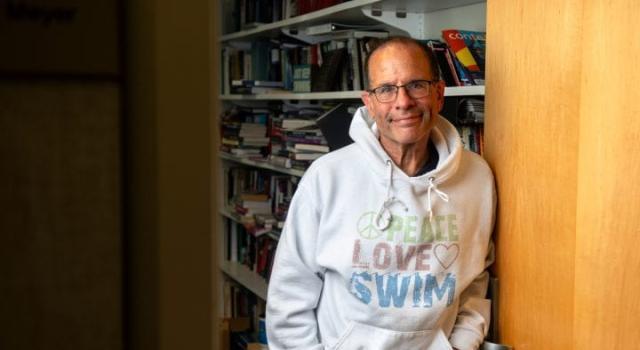Four Receive Earl Ubell Grants

Four Hampshire College students have been awarded Earl Ubell Grants, which recognize and support exceptional work that in some way seeks to make the scientific method or scientific findings accessible to nonscientists.
The grant program was established by Hampshire alumnus Michael C. Ubell 70F to honor the memory of his father, whose distinguished career has influenced generations of science writers.
Grusha Prasad 13F plans to take an Emotiv EEG system from Hampshire’s ERP (Event Related Potential) Lab to India. The technology detects electrical activity in the brain. She will use it in a workshop at Oakridge International School, Bengaluru campus, to introduce eighth graders to basic cognitive neuroscience and experimental design.
Prasad also plans to use the technology as a reference while talking about the importance of studying science beyond engineering and medicine, and the exciting opportunities interdisciplinary fields present.
Melanie Chitwood 12F is a creative writing and immunology concentrator. Her Division III will draw on research undertaken in the laboratory of Dr. Shiv Pillai at the Ragon Institute of Harvard and MIT to produce a poetry collection or book-length poem about the body, infection, disease, and healing. The Ubell Grant will support her attendance at a Science Writers conference in October.
“I will learn a great deal from writers who share my passion for science. Speaking with these writers and learning about their work will serve as inspiration for my own creative writing project,” Chitwood said.
Kira deCoudres 13F will use the Ubell Grant to attend the 29th Annual Society for Literature, Science, and the Arts (SLSA) Conference in Houston, where she will present on a panel. Her topic is “technological extensions of the human body that can access previously unperceivable experiences,” she said. deCoudres is a Division II student concentrating in sensation and perception.
Miriam King 11F plans to use the Ubell Grant to advance her Division III, Movement as an Intervention for Neurodegenerative Disorders (M.I.N.D) by registering a trademark and continuing to develop movement interventions after graduating. King combines neuroscience and dance, researching the benefits of dance classes for people with Parkinson’s disease and helping to design movement interventions for individuals with Huntington’s disease.
Earl Ubell began his career at the New York Herald Tribune as a messenger and rose to science editor, a position he held from 1953 to 1966 before transferring to the then-new medium of television. He was health science editor for WCBS-TV from 1966 to 1972, and from 1978 to 1995. He served as the news director for WNBC-TV News from 1972 to 1976.
Ubell covered such notable events as the first Sputnik flight in 1961 and the first U.S. manned space flight in 1962. He carried out scientific research at major laboratories, and was the author of eight books (one co-authored). His numerous awards for journalism, medical reporting, and science writing include an Emmy in 1970 for the New York area of the National Academy of Television Arts and Sciences and the Donald Salmon Award for significant contribution to development of the arts in that same year. Ubell died in 2007 at age 80.



